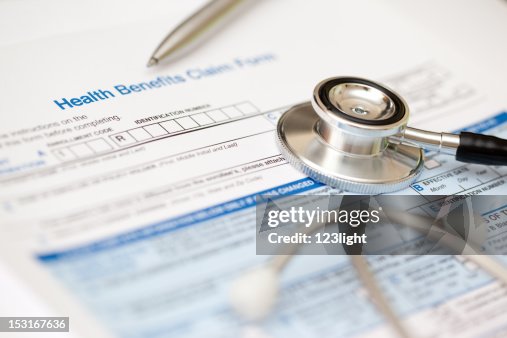How Medical Science Liaisons Contribute to Drug Approval Processes
How Medical Science Liaisons Contribute to Drug Approval Processes
Blog Article

In the complex landscape of pharmaceutical development, the role of a Medical Science Liaison has gained increasing prominence. These professionals serve as a critical bridge between the scientific community and the pharmaceutical industry, facilitating communication and fostering collaboration. Their deep understanding of clinical research and therapeutic areas positions them uniquely to support the drug approval process, ensuring that valuable scientific knowledge is integrated into regulatory submissions.
Medical Science Liaisons play a pivotal role throughout the lifecycle of a drug, from preclinical studies through post-marketing surveillance. They engage with healthcare professionals and key opinion leaders to gather insights that can inform clinical trial design and therapeutic strategies. By sharing their expertise and providing education on emerging data, Medical Science Liaisons contribute significantly to the successful approval and adoption of new therapies, ultimately aiming to improve patient outcomes and advance medical science.
Medical Science Liaison Course
Role of Medical Science Liaisons
Medical Science Liaisons play a crucial role in the drug approval process by serving as a bridge between pharmaceutical companies and the healthcare community. They are responsible for articulating complex scientific information about new drugs and therapies to physicians, researchers, and healthcare professionals. By establishing strong relationships with key opinion leaders, MSLs ensure that the most current and relevant information is communicated effectively, facilitating a deeper understanding of the drug's benefits and potential risks.
In addition to education and communication, MSLs engage in gathering insights from healthcare professionals that can inform clinical development and marketing strategies. They collect feedback on various aspects of the drug, which helps guide its positioning in the market and supports ongoing research efforts. Their ability to synthesize clinical data and respond to scientific questions is vital in addressing concerns that may arise during the approval process.
Moreover, MSLs are often involved in the planning and execution of clinical trials, aligning the interests of the regulatory body with those of the pharmaceutical company. They can identify potential sites for clinical studies and provide essential training to site staff about the drug and study protocol. By navigating the complexities of the regulatory environment and fostering dialogue among stakeholders, Medical Science Liaisons significantly contribute to the timely and successful approval of new therapies.
Engagement with Healthcare Professionals
Medical Science Liaisons play a crucial role in fostering relationships with healthcare professionals throughout the drug approval process. By engaging directly with doctors, pharmacists, and other key opinion leaders, MSLs provide valuable insights about new therapies and ongoing clinical trials. These interactions help healthcare professionals stay informed about emerging treatments and their potential benefits, fostering a collaborative environment that enhances patient care.
Through their expertise, MSLs are able to clarify complex scientific information and address any concerns healthcare professionals may have regarding novel therapies. This engagement is vital in building trust and credibility, ensuring that medical practitioners feel confident in integrating new drugs into their practice. MSLs also gather feedback from these interactions, which can inform the drug development process and regulatory strategy.
Furthermore, by identifying and connecting thought leaders within the healthcare community, MSLs facilitate discussions that can lead to influential publications and presentations. This not only disseminates critical information about new therapies but also helps to establish the scientific validity of the products being developed. Ultimately, through active engagement with healthcare professionals, Medical Science Liaisons significantly contribute to the successful adoption of new drugs in clinical practice.
Impact on Clinical Trials and Drug Approval
Medical Science Liaisons play a crucial role in bridging the gap between pharmaceutical companies and the clinical research community. They are often involved in the planning and execution of clinical trials, helping to identify suitable investigators and sites that can provide valuable insights. By fostering relationships with key opinion leaders, MSLs ensure that the trials are aligned with the latest scientific developments and regulatory requirements, ultimately leading to more robust study designs. This involvement often translates into enhanced recruitment strategies and improved patient enrollment, which are vital for timely and successful trial completion.
Additionally, MSLs are instrumental in the process of data dissemination once clinical trials are completed. They work diligently to communicate trial results to various stakeholders, including healthcare professionals, regulatory bodies, and internal teams. Their ability to translate complex scientific data into understandable insights helps in addressing inquiries and concerns that may arise during the drug approval process. This effective communication not only contributes to a shared understanding of the drug's efficacy and safety but also aids in the preparation of regulatory submissions that are critical for gaining approval.
Finally, MSLs contribute to post-approval activities by ensuring that the medical community remains informed about the drug's ongoing effectiveness and safety profile. They engage with healthcare providers to gather real-world evidence and feedback, which is essential for continual assessment and monitoring of the drug once it is on the market. This ongoing interaction not only supports the drug's lifecycle management but also enhances the relationship between the pharmaceutical company and the medical community, ultimately fostering trust and confidence in the drug's use.
Report this page